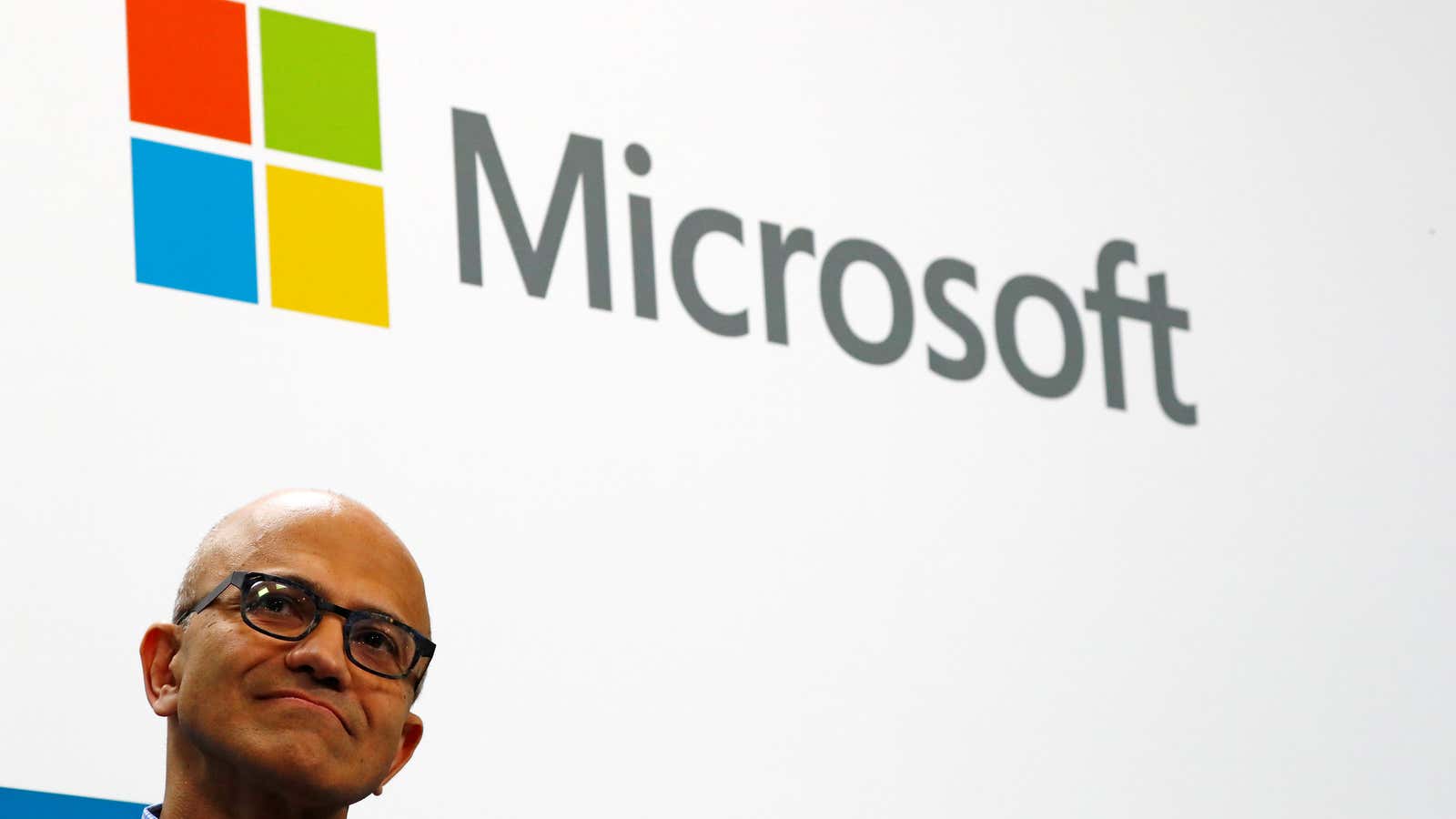Microsoft has been the biggest winner from stock market investment into environmental, social, and governance-oriented (ESG) funds, according to financial data company EPFR. The Windows creator is among the tech giants benefitting as savers increasingly prioritize climate and social concerns when investing.
ESG funds held $2.3 billion worth of Microsoft stock as of Dec. 31, according to EPFR data. Alphabet and Disney came in at No. 2 and 3. The EPFR data accounts for all equity funds (active as well as passive index funds) around the world.
Funds with higher ESG and socially responsible investing (SRI) ratings have been screened, often by an index or rating company, to try and make sure they meet certain criteria for positive social or climate-related attributes. These filters may help investors avoid buying assets that are involved in extracting fossil fuels, for example, or companies that don’t have a diverse board of executives.
“In pretty much every client meeting at the moment, we wind up having an SRI/ESG conversation,” said Cameron Brandt, director of research at EPFR. These types of funds “are soaking up the cash,” he said. “The caveat is that we are seeing a lot of funds start to talk the talk without walking the walk.”
Almost all millennials (95%) are interested in sustainable investing, according to research by Morgan Stanley. Plastic reduction (Quartz member exclusive) and climate change are among the biggest concerns, according to respondents in the investment bank’s survey. That’s giving a tailwind to ESG stock funds, which have received around $70 billion of assets in the past year, the Financial Times (paywall) reported, citing EPFR data. Traditional equity funds have had around $200 billion of outflows over the same period.
Index funds can be weighted in part by market capitalization, meaning the bigger a stock’s market value, the bigger its share of the index. Big US tech companies like Microsoft, Alphabet, and Google are valued at more than $1 trillion each in public markets, and they tend to be beneficiaries of flows into market-cap weighted index funds.
There are important, persisting doubts about whether some socially responsible funds are as virtuous as they claim. EPFR says Caterpillar, whose machinery is used for everything from fracking to coal mining, has been included in some funds that purport to be sustainable. (The company also markets solar-powered energy systems; you can read Caterpillar’s sustainability report here.)
Companies that run massive data centers have to power those facilities with enormous amounts of electricity. Microsoft says it’s taking a tough line on its environmental footprint. It says it will be “carbon negative” by 2030, and that by 2050 it will have removed all the carbon it has emitted since it was founded in 1975. Last year, Microsoft was included in FTSE Russell’s FTSE4Good Index.
At the same time, Microsoft doesn’t score as highly on gender issues. It wasn’t included on Bloomberg’s gender-equality index. Last year, Quartz reported on an email chain in which dozens of women shared their own frustrations about discrimination and sexual harassment at the company.
The discrepancy highlights a conundrum for investors: Stock pickers may have different priorities when it comes to “socially responsible” companies. And even as indexes and rating companies spring up to help investors select investments that agree with their values, there’s no substitute for proper due diligence.
